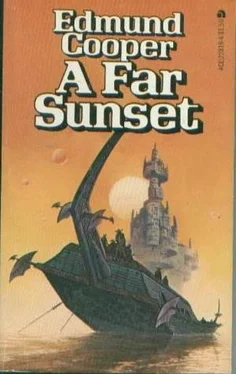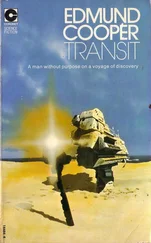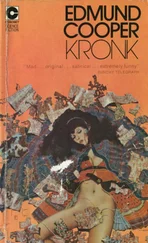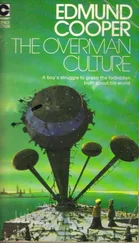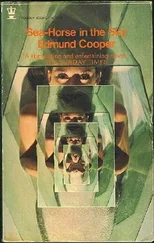It was the first and last time Poul Mer Lo had audience with Enka Ne the 610th. Unlike his predecessor, he was an old, old man. The ceremonial plumage lay ill upon him. His bird cry was thin and reedy. He strutted sadly, like one who was too heavily burdened with care and responsibility—which, probably, was the case.
‘I am told you are a teacher, Poul Mer Lo,’ he had said.
‘Yes, lord, that is so.’
‘It is the province of a teacher to teach, is it not?’
‘Yes, lord.’
‘Then teach, Poul Mer Lo, and leave more weighty matters to those who know how best to deal with them. The hunter should remain with his darts, the warrior with his trident, and the teacher with his—what is the word you have given us?— sku-ell.’
Then Enka Ne uttered his desolate bird cry, indicating that the audience was at an end. As Poul Mer Lo withdrew, he heard the god-king vainly trying to stifle a paroxysm of coughing.
The expedition against the Lokhali was brief and successful. After eleven days, the victorious army—minus about four hundred and fifty casualties—returned to Baya Nor with nearly one hundred prisoners.
Enka Ne addressed the prisoners at considerable length in the sacred city, regardless of the fact that they could not understand a word of what he was saying. Then he decreed that every eighth man should be set free, without food or weapons, to make his way back—if he could—to the land of the Lokhali, there to report on the clemency and omnipotence of Enka Ne. The remainder were to be crucified on the Fourth Avenue of the Gods to demonstrate the vengeance of Oruri and the unprofitability of attacking Bayani temples.
On the day of crucifixion, which had been declared a day of celebration and rejoicing, Poul Mer Lo, in common with several thousand Bayani, strolled along the Fourth Avenue of the Gods.
Apart from the fact that nearly ninety men were dying in a slow and altogether gruesome manner, the scene was vaguely reminiscent of a terrestrial fair or carnival. Cheapjacks were offering various delicacies and novelties, jinricksha men— using two-wheeled carriages, by grace of the stranger, Poul Mer Lo—were doing a roaring trade in slow journeys between the rows of wooden crosses. And children were working off their surplus energies by pelting the dying Lokhali with stones, offal and small aromatic missiles compounded of excreta.
Poul Mer Lo, steeling himself against the suffering, passed the dying Lokhali, one by one, and tried to observe them with scientific detachment.
He failed. The stench and the pain and the cries were too much for him. He did not even notice that they were all taller than the Bayani or that most of them possessed four fingers and a thumb.
However, as he passed one who was clearly in extremis, he heard a few words—half murmured, half moaned—that stopped him in his tracks and brought back visions of a world that he would never see again.
‘Griiss Gott,’ sobbed the Lokhali, ‘Grtiss Gott! Thank you … Thank you … “chantez de faire votre connaissance” … Man … Woman … Good morning … Good night. Hello! Hello! Hello!’
‘Where are they?’ demanded Poul Mer Lo in Bayani.
There was no response.
‘Where are they—the strangers?’ he repeated in English. Again there was no response.
‘Ou est les etrangers?’
Suddenly the Lokhali’s body jerked spasmodically. Then he gave a great cry and hung slackly on the wooden cross.
In a fury of frustration, Poul Mer Lo began to shake the corpse.
But there was no miracle of resurrection.
Paul Marlowe was no longer quite so dissatisfied with his ‘Extra-Terrestrial Academy’. In the last few months both Zu Shan and Nemo had made quite remarkable progress. Once Paul had managed to convince them that it was both a privilege and a pleasure for any thinking person to find out as much as possible about the world in which he exists, and that knowledge brought the power to accomplish much that could not be otherwise achieved, the boy and the crippled child became filled with insatiable curiosity.
It was as if something had exploded in their minds, sweeping away all the inhibitions, the closed-thought attitudes, and the deadening traditions of centuries of Bayani culture. The sophisticated savages became primitive scientists. They no longer accepted what they were told. They challenged it, they tried to refute it, they asked awkward questions. By Earth standards, Zu Shan was about fifteen—three or four years younger than his dead brother—and Nemo could not be more than six. Yet hardship and suffering had brought them a premature maturity. So that when they did eventually grasp the importance of learning, they began to learn at a very high speed.
The same could not be said of either the one-armed Bai Lut or Tsong Tsong. They did not have the spark. Their minds would never get into top gear. Temperamentally, they were hewers of wood and drawers of water. They lacked imagination—and that strange ability to take an intuitive leap into the dark. They were content to play with toys, whereas Zu Shan and Nemo, though not above playing with toys, also wished to play with ideas.
Zu Shan, sensing perhaps that there was more to be got from his teacher than could properly be expressed in Bayani, began to learn English. Nemo, not to be outdone, also elected to learn what was for all practical purposes a ‘dead tongue’.
But, besides providing the means for expressing new concepts, it gave them a sense of status to be able to talk to Paul in his own language. It gave them, too, a sense of intimacy, and drew the three of them close together.
Zu Shan was never quite as fluent as his brother in speaking the language of the stranger; but he soon learned enough to say all that he needed to say—if he took his time about it. Nemo, though younger, had an advantage. He had already discovered that on occasion he could establish sufficient en rapport to read minds.
The three of them were sitting on the verandah step one evening while Paul sipped his kappa spirit. It had been a hard but pleasant day, for they had completed the building of the school. It contained chairs and tables, a potter’s wheel, a small furnace for baking pots, a few kappa leaf charts and some tools that the boys had designed themselves. It also contained four rough beds. It was the first boarding school in Baya Nor.
‘You are looking far away, Paul,’ said Zu Shan. ‘What are you thinking about?’
Nemo smiled. ‘He is thinking about many things,’ he announced importantly. ‘He is thinking about the stars, and about the words of the dying Lokhali soldier, and about the star ship in which he came to Altair Five, and about a whiteskinned woman. I have been riding his thoughts, but there are so many different ones that I keep falling off.’
Nemo’s favourite description for his telepathic exercise was ‘riding thoughts’. To him it seemed a very accurate description; for he had discovered that people do not think tidily, and that their mental processes are frequently disjointed—which was why he could not receive for very long without ‘falling off\
Paul laughed as the tiny crippled Bayani recited the revealing catalogue. ‘You will get yourself into trouble one of these days, Nemo,’ he observed. ‘You will ride a thought which tells you that I am about to drop you into the Canal of Life.’
‘Then I shall try to avoid the disaster,’ retorted Nemo complacendy.
‘Have you had any new dreams recendy about the god who brought forth strange children from his belly?’
‘No, only the old dream. I have it quite frequendy now. I’m getting used to it.’
Paul sighed. ‘I wish you could arrange to dream in greater detail. I wish, too, that I knew where you got the dream from. It could, I suppose, be something you have picked up out of my dreams.’
Читать дальше
